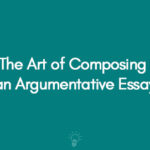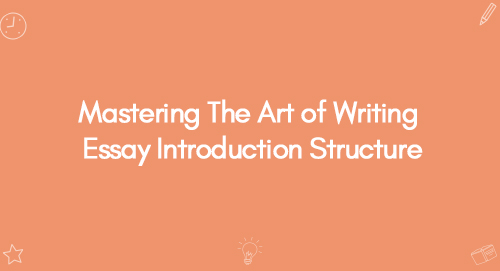Philosophy Essay Examples | Purpose and Mistakes to Avoid in Writing
Philosophy Essay Examples | Purpose and Mistakes to Avoid in Writing

The Art of Composing an Argumentative Essay | Example and Element
January 16, 2024
Nursing Essay Examples | A Structured Approach and Worthy Suggestions
January 17, 2024A philosophy essay is an academic writing piece that explores and discusses philosophical ideas, concepts, arguments, and issues.
A philosophy essay explores notable philosophical theories, contrasts various philosophical traditions, and examines how philosophical exploration adds to our understanding of complex issues in science, ethics, and society.
Review the example here:
Example: 1 Good Essay Examples and Key Components
What is a Philosophy Essay?
A philosophy essay is a piece of writing that presents and defends a claim using logical arguments. It has become common practice to express philosophical ideas clearly and nonjudgmentally. This essay discusses examples' significance in philosophical writing, emphasizing their role in clarifying concepts and aiding comprehension.
The Purpose of Presenting Examples in Philosophy Essay
Examples often play an effective role in the education process in academic discussion because they shed light on abstract concepts, present some tangible manifestations and enhance one’s understanding of complicated thoughts. Including examples in an essay serves several crucial purposes: providing a deeper understanding of the story, helping the reading process, and linking theory and practice. This essay discusses examples' significance in philosophical writing, emphasizing their role in clarifying concepts and aiding comprehension.
- Examples of Philosophy clarify abstract or theoretical concepts by providing real-life examples that readers can relate to.
- Examples offer an additional layer of explanation, aiding readers in comprehending theories or philosophical principles.
- Real-world instances make it easier for individuals to grasp the nuances of philosophical concepts.
- Examples bridge the gap between philosophy and real-world scenarios, showcasing the relevance of abstract ideas in practical contexts.
- Readers can see how philosophical principles apply to their lives, encouraging a deeper connection to the subject matter.
- Examples serve as evidence to support theoretical claims or assertions made within the essay.
- They add credibility to the essay by demonstrating the practical implications of philosophical ideas
- Readers gain a more comprehensive understanding of ideas by examining different examples.
- Readers are likelier to connect with and retain information presented through compelling examples.
- They stimulate thought and reflection, fostering a more active engagement with the essay.
Putting examples in the essay is not just a matter of style but a purposeful technique to make understandable, more abstract ideas and link them with something concrete happening in everyday life. Through providing real-life examples, essays bring difficult philosophical theories down to earth, making them relevant to the reader’s life and helping to understand their significance better.
Philosophy Essay Examples To Help You Write Strongly
Here are a few philosophical essay examples that will assist in making your philosophical essay writing strong.

A Brief Example
This is an example of a philosophy essay highlighting the major aspects used in a philosophical essay.
Title: Exploring Dualism: The Mind-Body Duality in Philosophical Thought
Introduction
Dualism, a philosophical stance with roots stretching back to ancient times, proposes the existence of two distinct and irreducible substances: the physical body and the immaterial mind or soul. This dualistic perspective, often associated with philosophers like René Descartes, has sparked enduring debates about the nature of consciousness, the mind-body relationship, and the implications for our understanding of human existence. This essay will explore the philosophy of dualism relevance in contemporary philosophical discourse.
mind is non-material and has attributes like consciousness, thought and consciousness. The pineal gland bridges the gap between the mind and body but remains one of the most formidable challenges of dualistic thinking.
Dualism encounters a crucial challenge known as the mind-body problem. The critics allege that the view needs help explaining the link between mental events and their corresponding physical counterparts; hence, this gap still needs to be seen. However, it remains a significant issue in modern philosophy today despite all problems and criticism. The discovery of the neurobiological correlates to subjectivity has not answered the "hard problem" about the true nature of subjective awareness; the latter continues to challenge dualism.
Body Paragraphs
Philosophically, it can be traced back to Plato's thoughts and those of many others before him, like Aristotle. According to substance dualism, the mind and the body exist as two completely different kinds of substances. The body is extended and composed of material substance; the mind is non-material and has attributes like consciousness, thought and consciousness. The pineal gland bridges the gap between the mind and body but remains one of the most formidable challenges of dualistic thinking.
Conclusion
Dualist philosophy still raises questions regarding human life. On the one hand, dualism is criticized because of its distinction in analyzing mental and physical issues discussed throughout history. Dualism reflects the attraction and challenge in interpreting basic human consciousness and self-awareness components.
Another Distinctive Example
Here is a distinctive example of a philosophy essay reflecting a deep analysis of philosophical writing.
Title: The Nature of Reality: Exploring Metaphysical Perspectives
Introduction
Philosophy has long sought to know what reality is all about. Metaphysics, the subdivision of philosophy, deals with subjects relating to reality, existence, and mind-matter connection. This essay will compare two influential metaphysical perspectives: idealism and materialism.
Body
- Theory of idealism
The theory of idealism states that the inherent nature of reality consists of mental or immaterial elements. The proponents of idealism say the mind, consciousness or ideas constitute reality while the material universe derives from the mind. The theory of subjective idealism was developed by one of the notable idealist philosophers, George Berkeley. As per Berkeley, to be is to be perceived, meaning that for the object to exist, it has to be seen by the mind.
- Historical Materialism
In contrast, materialism claims that reality comprises physical substances and has nothing to do with mental states. According to materialists, all existing things – including thoughts and consciousness – eventually reduce to materialist processes and entities. For instance, Karl Marx proposed the theory of historical materialism, which states that social progress and ideas are influenced by the prevailing conditions, chiefly the economy.
In Conclusion
Recent philosophers have presented sophisticated standpoints which aim to conflate some points of idealism and materialism. Philosophical discourse has been dominated by idealism and materialism for centuries. Philosophical investigation is rooted in the pursuit of understanding that which is. Metaphysical exploration is an ever-evolving process in philosophy as new ideas and perspectives emerge.
To-Do List for Philosophy Essay Writing
Here's a checklist to guide you through writing a philosophy essay.
Before Writing
Consider the factors below before starting your writing process
- Understanding the Prompt
Check if you have thoroughly understood the essay prompt or question.
- Research and Reading
Think if you have conducted sufficient research and read relevant philosophical texts.
- Thesis Statement
Look for a formulated clear and concise thesis statement reflecting my essay's main argument.
During Writing Process
Reviewing your writing to avoid mistakes while drafting the essay is essential.
- Support your Argument
Present a strong and coherent argument that supports my thesis statement. Make sure the argument is logically structured.
- Analysis of Philosophical Concepts
Check if you have analyzed and explained the philosophical concepts relevant to my essay and provided examples or evidence to support my analysis.
- Engagement with Counterarguments
Look for potential counterarguments addressed in the essay.
After Writing
In this stage of essay writing, revise and review your draft by following the steps below.
- Seek Feedback
Get feedback from peers, instructors, or mentors. Consider if you have incorporated constructive feedback. - Do Final Review
Have I done a final review to ensure all essay components are in place? Question yourself when reviewing your writing. - Submission Guidelines
Ensure you followed all submission guidelines, including formatting and file type requirements. By going through this checklist, you can ensure that your philosophy essay is well-researched, well-argued, and effectively communicates your understanding of philosophical concepts.
7 Common Errors to Avoid in Philosophy Essay Writing
Here are seven common mistakes that often bring down students' grades but are easily avoidable:
- Appealing to Authority
In philosophy, do not depend on authoritative appeal but strive to develop your stance in philosophy essays - Flexing Sentences in Philosophy Essay
Shaping your sentences to seem smart is not a good option; instead, try using simpler means of expression with the exact content. - Make Relation with Content
Everything else, such as philosophy essay examples, has to be relevant and should directly connect to how you prove things as you argue. - Add Value and Meaning
Avoid Inflating your word count without delivering value in the writing process; add volume without substance. - Avoid Making Weak Assertions
Give concrete reasons for all your statements and explicitly present reasons for or against every claim you include. - Leaving Core Concepts Undefined
Explain what you mean by the words like 'free will' or 'existentialism' in the introduction Paragraph. - Fear of Being Wrong
Write facts regarding philosophy without fearing that no one can be proven wrong in philosophy.
Conclusion
Writing philosophy essays is a key part of studying philosophy. Philosophy essays can cover many topics, including ethics, metaphysics, epistemology, political philosophy, and philosophy of mind. Philosophy aims to develop arguments based on some philosophical thoughts in the contribution towards the discussion by philosophy experts.
Free Premier Essay Writing Topics
Essay Writing is an essential part of academics which presents the ideas, arguments, opinions, or positions of the writer regarding the topic. The writer supports his claims using facts, evidence, or survey studies.
- Clear presentation or understanding of the type of essay
- An appealing introduction with an unambiguous thesis statement
- A well-defined structure of body paragraphs supporting the thesis
A prospective conclusion with an optimistic tone



















